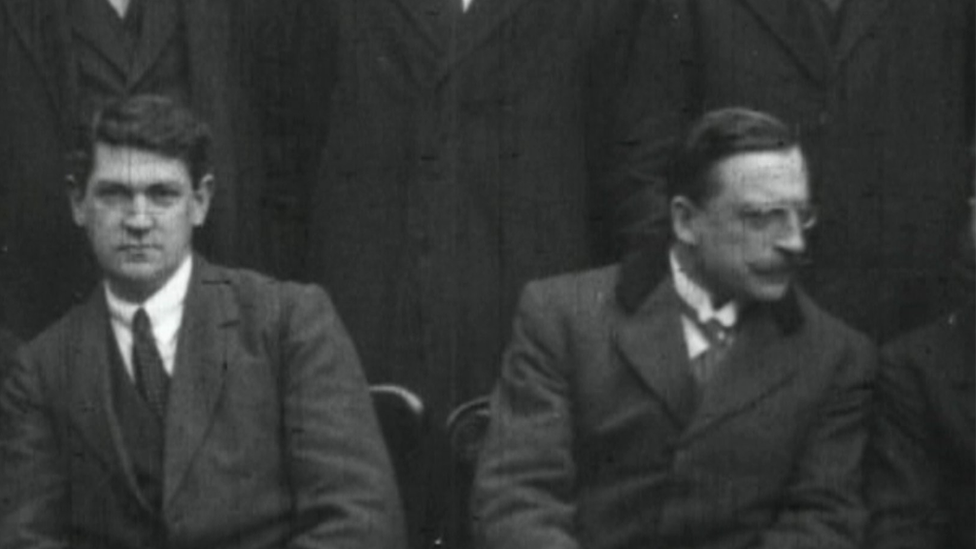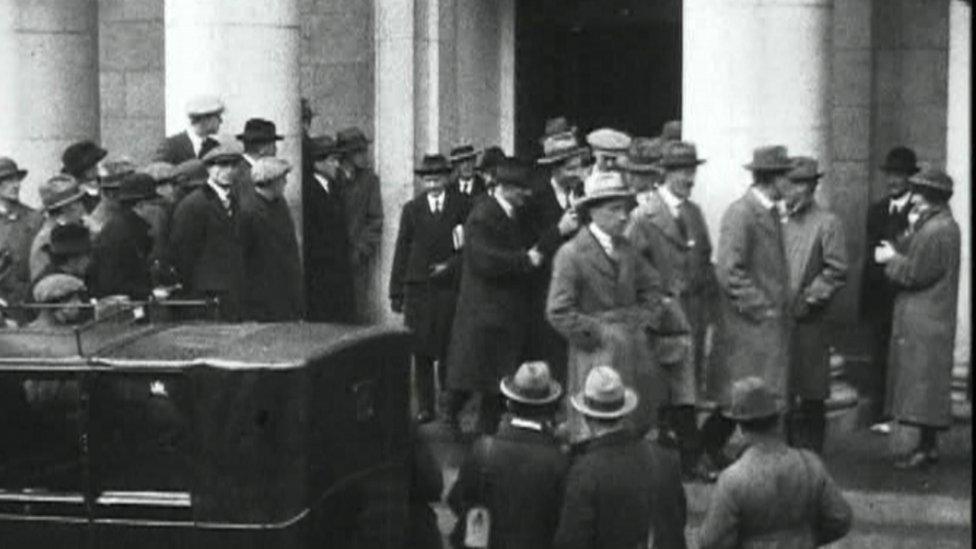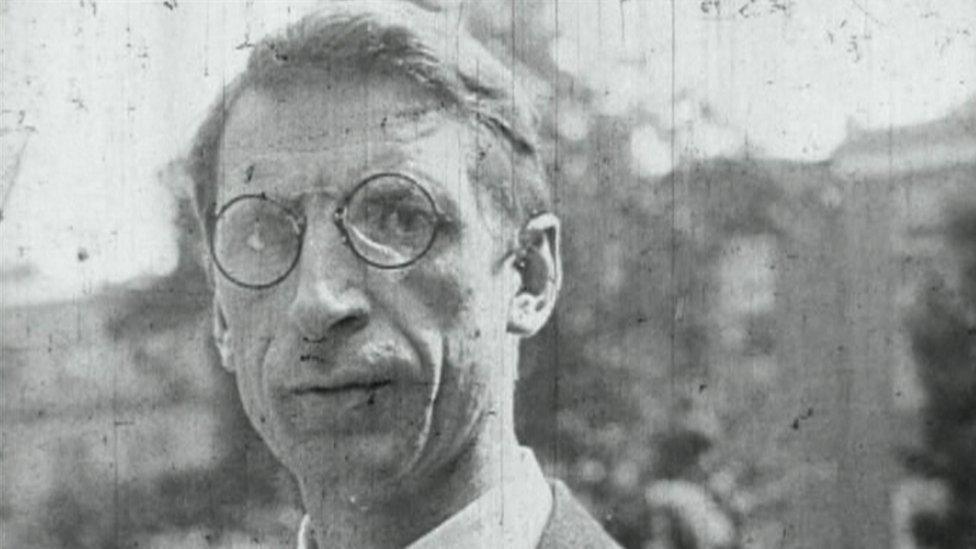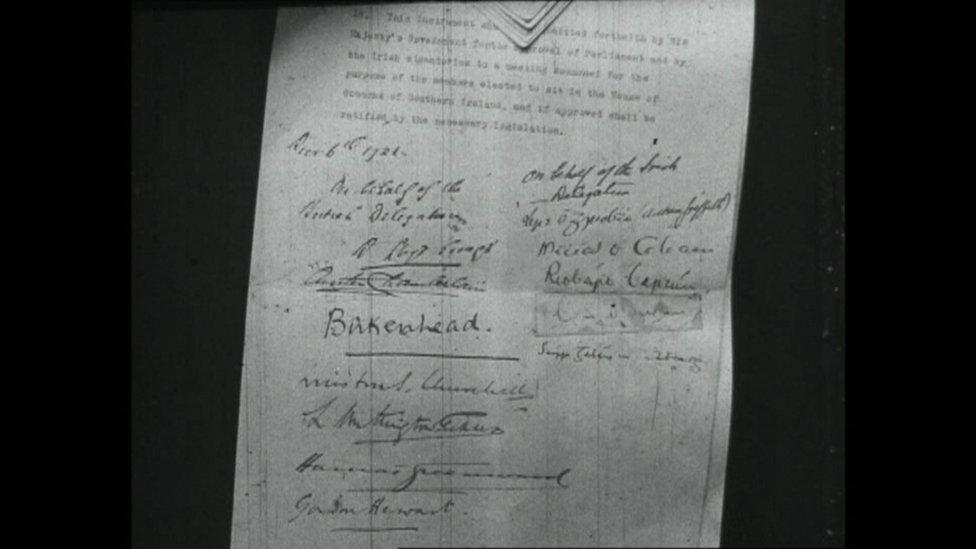NI:100: Century on from debate on creation of Irish state
- Published

The Irish delegation was led by Michael Collins (left) and Arthur Griffith
One hundred years ago, debates began in London and Dublin about whether to ratify the Anglo-Irish Treaty, which proposed a new Irish state.
While most of the political focus was on arguments over the treaty in Dublin, an overwhelming number of MPs at Westminster backed it.
The vote - 401 to 58 - took place on Friday 16 December 1921, exactly 10 days after the agreement was reached at Downing Street.
The then Prime Minister David Lloyd George said: "No agreement ever arrived at between two peoples has been received with so enthusiastic and so universal a welcome."
The former Ulster Unionist leader Lord (Edward) Carson mourned the "break up" of the United Kingdom but the treaty had a quick and relatively smooth passage through Westminster, and was passed before Christmas.

Read more about the Anglo-Irish Treaty

In Dublin, the debate continued into the new year.
The Irish delegation at the London negotiations had been led by Arthur Griffith and Michael Collins.
When they arrived back in Dublin they were met by opposition among their Sinn Féin colleagues led by Éamon de Valera.
The agreement fell short of the 32-county independent republic which Sinn Féin had wanted. It kept Ireland within the British Empire.

The treaty was debated at University College Dublin, the temporary home of the Dáil
The treaty was debated at a series of intense sessions in December and January in the Dáil, the Dublin parliament set up in 1919 in defiance of British rule.
Collins and Griffith argued that the treaty offered a pathway to full independence, and the re-unification of Ireland.
The Dublin debates began on 14 December, in the temporary home of the Dáil at University College Dublin on Earlsfort Terrace.
Collins defended the treaty and insisted it provided "the freedom to achieve freedom".
Although the failure to end the partition of the island was seen as one of the treaty's main weaknesses, the issue did not dominate the debates.
Instead it was the mandatory oath to the king, contained in the agreement, which featured in many of the Dáil discussions.
De Valera complained that the treaty "acknowledges the head of the British Empire, not merely as the head of an association, but as the direct monarch of Ireland".

Éamon de Valera disliked the mandatory oath to the king
There were 13 days of debate, with only a brief pause for the Christmas and new year period.
A vote was taken on Saturday 7 January 1922.
The treaty was passed by 64 votes to 57.
Four more votes against the treaty would have altered the outcome, and changed the course of history.

The treaty was passed by 64 votes to 57
As it was, the political battle soon turned into a different type of conflict, a civil war. It erupted within six months.
Before the end of the year, both Collins and Griffith were dead.
Griffith died after a heart attack in August at the age of 51.
The same month, Collins was shot dead at Beal na Bláth in County Cork. He was aged 31.
The civil war did not stop the enactment of the treaty. The Irish Free State was set up as planned in December 1922.
However, the arguments about the treaty continued through the decades.

The BBC News NI website has a dedicated section marking the 100th anniversary of the creation of Northern Ireland and partition of the island.
There are special reports on the major figures of the time and the events that shaped modern Ireland available at bbc.co.uk/ni100.
Year '21: You can also explore how Northern Ireland was created a hundred years ago in the company of Tara Mills and Declan Harvey.
Listen to the latest Year '21 podcast on BBC Sounds or catch-up on previous episodes.